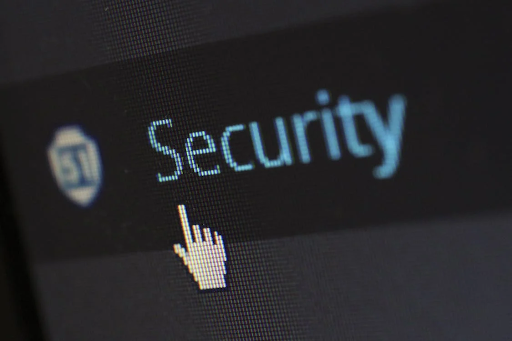In today's digital age, where financial transactions are increasingly conducted online, cybersecurity has become a paramount concern for traders and investors. The advent of technology has revolutionized the trading landscape, offering convenience, speed, and accessibility like never before. However, it has also opened the door to a host of cyber threats and vulnerabilities that can jeopardize your financial assets. In this blog post, we will delve into the importance of cybersecurity in trading and explore strategies to protect your assets in this digital world.
The Digital Transformation of Trading
Trading has come a long way from the days of shouting on the trading floor. With the rise of the internet and sophisticated trading platforms, individuals and institutions can now execute trades from the comfort of their homes or offices. While this has democratized trading and provided countless opportunities, it has also introduced new risks.
Online trading platforms have become a prime target for cybercriminals looking to exploit vulnerabilities and gain unauthorized access to accounts. The motivations behind these attacks can range from financial gain to disruption of financial markets. To safeguard your assets, it is crucial to understand the potential threats and take proactive steps to mitigate them. If you're interested in trading, it's also important to find out more about Binary Options and exercise caution when considering such investment opportunities.
The Risks of Cyberattacks in Trading
Cyberattacks in the trading world can take various forms, each with its own set of risks. Some of the most common threats include:

1. Phishing Attacks
Phishing attacks involve tricking individuals into revealing sensitive information, such as login credentials or personal details. Cybercriminals often use emails or fake websites that mimic legitimate trading platforms to deceive traders. Once they have this information, they can gain unauthorized access to accounts and potentially drain them.
2. Malware and Ransomware
Malicious software (malware) and ransomware can infect your computer or platform, giving cybercriminals control over your device or data. Ransomware, in particular, can encrypt your files and demand a ransom for their release, potentially causing significant financial losses.
3. Insider Threats
Insider threats come from within an organization or the platform itself. It could involve employees with malicious intent or individuals who accidentally compromise security. These threats can be challenging to detect and prevent, making them a significant concern for traders.
4. Distributed Denial of Service (DDoS) Attacks
DDoS attacks overwhelm a trading platform's servers with a flood of traffic, causing it to become temporarily unavailable. These attacks can disrupt trading activities, resulting in financial losses and reputational damage.
5. Data Breaches
Data breaches can expose sensitive information, including your financial and personal details. Cybercriminals may use this stolen data for identity theft or to conduct fraudulent transactions on your behalf.
Protecting Your Assets in a Digital World
Given the myriad of threats in the digital trading environment, safeguarding your assets should be a top priority. Here are some essential steps to enhance your cybersecurity:
1. Use Strong, Unique Passwords
Avoid using easily guessable passwords like "123456" or "password." Instead, create strong, unique passwords for your trading accounts. Consider using a password manager to generate and store complex passwords securely.
2. Enable Two-Factor Authentication (2FA)
Two-factor authentication adds an extra layer of security by requiring you to provide a secondary authentication method, such as a one-time code sent to your mobile device, in addition to your password. Enable 2FA wherever possible to protect your accounts.
3. Stay Informed About Phishing Techniques
Educate yourself about phishing techniques, and be vigilant when receiving emails or messages asking for personal information. Verify the authenticity of any communication you receive from your platform.
4. Regularly Update Software and Antivirus
Keep your operating system, trading software, and antivirus programs up to date. Software updates often include security patches that address known vulnerabilities, reducing your exposure to threats.
5. Be Cautious with Links and Downloads
Avoid clicking on suspicious links or downloading attachments from unknown sources. These could contain malware that compromises your device or trading platform.
6. Monitor Your Accounts
Regularly review your trading accounts for any unusual activity. If you notice any unauthorized transactions or changes to your account settings, report them immediately to your trading platform and financial institution.
7. Use a Secure Network
Trade only on secure and trusted networks. Avoid using public Wi-Fi networks for trading, as they may be less secure and more susceptible to eavesdropping.
8. Consider a VPN
A Virtual Private Network (VPN) can provide an additional layer of security by encrypting your internet connection, making it more difficult for cybercriminals to intercept your data.

Binaryoptions: A Case in Point
Binaryoptions.com is an online platform that offers trading services related to binary options. While binary options trading can be a legitimate financial activity, it has also been associated with fraudulent schemes and scams in the past. Investors should exercise caution when considering binary options trading and conduct thorough research before engaging with any platform.
The binary options industry has faced scrutiny from regulatory authorities due to concerns about transparency, fairness, and the potential for fraudulent practices. Some operators in this space have been known to engage in deceptive advertising and unethical business practices, which can put traders at risk of losing their investments.
To protect your assets when considering binary options trading, it is essential to:
Research Thoroughly: Before engaging with any binary options platform, research the company, its reputation, and its regulatory status. Make sure a reputable authority has licensed and regulated them.
Beware of Promises of High Returns: Be cautious of platforms that promise high returns with little risk. Remember that trading always carries a degree of risk, and no one can guarantee profits.
Read the Fine Print: Carefully read and understand the terms and conditions, including withdrawal policies and fees, before depositing funds with a binary options platform.
Seek Independent Advice: Consider seeking advice from independent financial advisors or experts who can provide unbiased guidance on binary options trading.
Use Caution with Personal Information: Be wary of platforms that request excessive personal information or sensitive financial details. Only share information with trusted and regulated entities.
In conclusion, as trading and investing activities continue to migrate to digital platforms, the importance of cybersecurity cannot be overstated. Cyber threats pose a significant risk to your financial assets, and taking proactive steps to protect yourself is essential. By following best practices for cybersecurity and conducting due diligence when engaging with trading platforms, you can safeguard your assets in the digital world and make informed investment decisions.








































 Tutorials
Tutorials xeohacker
xeohacker 0 Comments
0 Comments

















